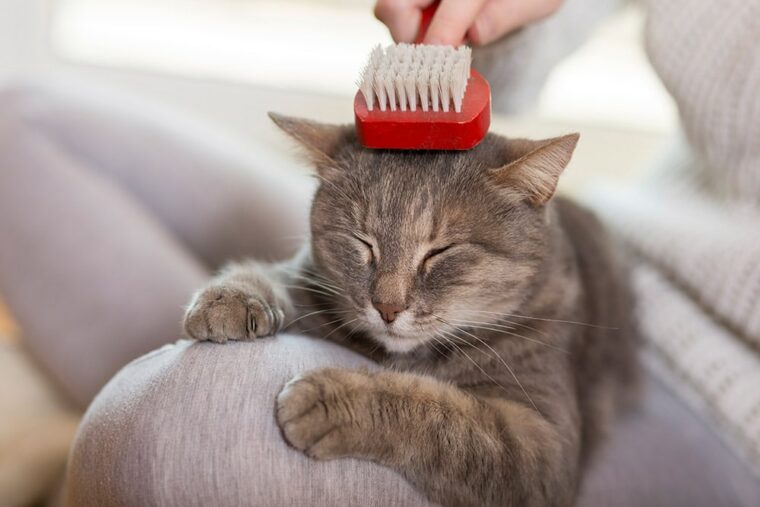
Brushing a cat is not for the faint of heart. Sure, some cats love it, but odds are, if you’re reading this, you’re having a little bit of trouble getting your cat to cooperate. Afterall, cats are the boss, and we just work for them. Still, brushing is important for their overall health, especially for medium and long-haired cats. In this blog post, we will discuss 10 tips and tricks that will help make the process easier for both you and your cat!
How to Brush a Cat in 10 Simple Steps
Before We Begin: Why Is Brushing Your Cat Important?
There are several reasons why brushing your cat is important. For one, it helps to remove any dead hair and skin cells that can lead to mats and tangles. It also stimulates the skin, which helps promote a healthy coat. Additionally, it can help reduce shedding by up to 90%, which is great news for everyone in the house!
Now that we know why brushing our cats is important, let’s get started on how to do it!
1. Choose the Right Brush
There are a variety of brushes on the market, so choosing the right one for your cat can be tricky. If you have a short-haired cat, look for a brush with shorter bristles. For medium or long-haired cats, you’ll want a brush with longer, sturdier, and more durable bristles, such as a slicker brush.
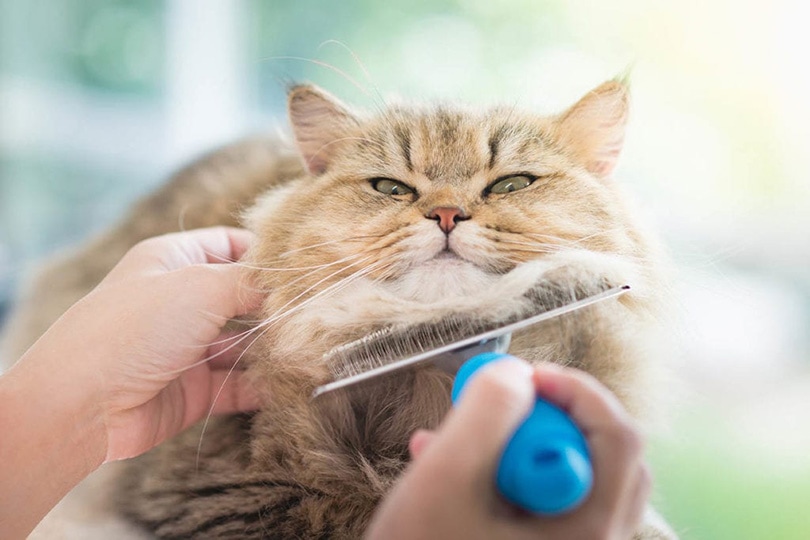
2. Create a Routine
Cats are creatures of habit and routine. If you can establish a regular brushing schedule, your cat will be more likely to cooperate. Try to brush at the same time each day and make it a part of their daily routine.
3. Let Your Cat Get Relaxed
Choose a time when your cat is calm and relaxed to begin brushing. This may be first thing in the morning, after they’ve had a nap, or right before bedtime. If you can find a time when they’re already feeling mellow, it will make the process much easier on both of you!
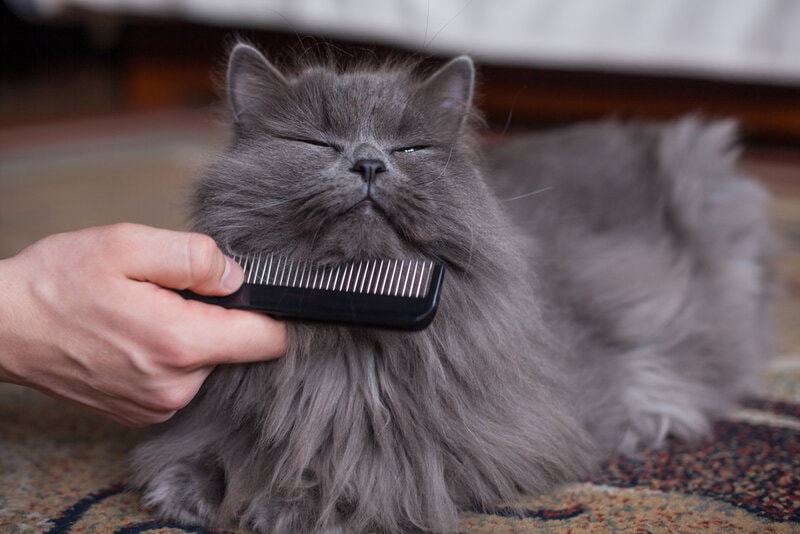
4. Take Your Time
Start slow and gradually increase the amount of time you spend brushing. If your cat has never been brushed before, start with just a few strokes, and work up to longer sessions over time. It’s important to go at their pace so that they don’t get overwhelmed or stressed out.
5. Be Gentle
Cats have sensitive skin, so it’s important to be gentle when you brush. Use slow, steady strokes, and avoid pulling or tugging on their fur. If they start to get agitated, take a break and try again later.

6. Use the Right Products
There are a variety of products on the market that can help make brushing easier. Look for ones that are specifically designed for cats and their sensitive skin. You may also want to invest in a detangling spray or conditioner to use before you start brushing.
7. Be Patient
Brushing a cat can be a long and frustrating process, but it’s important to be patient. If you rush it or force them into it, they’re just going to get more upset. Take your time, be gentle, and let them get used to the process. Eventually, they’ll come around!
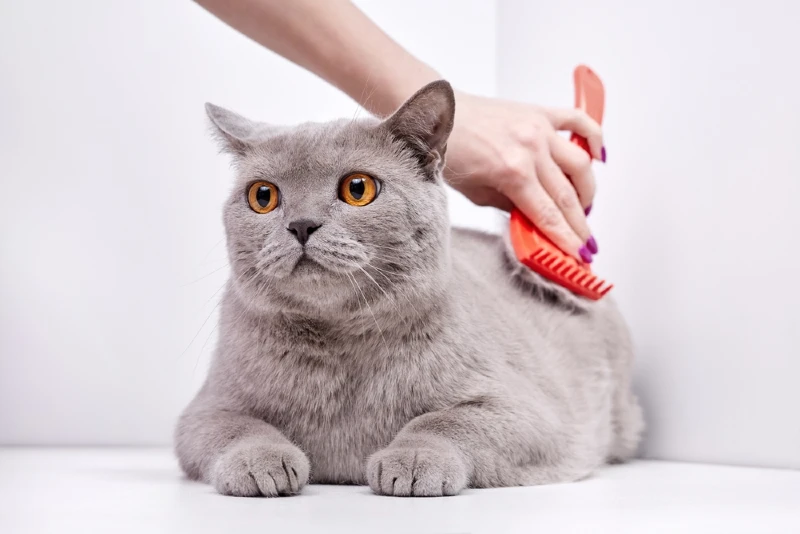
8. Use Detangler
If you’re having trouble getting your cat to cooperate, there are a few things you can try using a detangling spray or conditioner to make the process easier.
9. Wrap Your Cat Softly
If your cat is really resistant to being brushed, you may need to wrap them in a soft towel or blanket. This will help them feel more secure and may make them more likely to stay still. Just be sure not to wrap too tightly and always keep an eye on them so they don’t overheat.
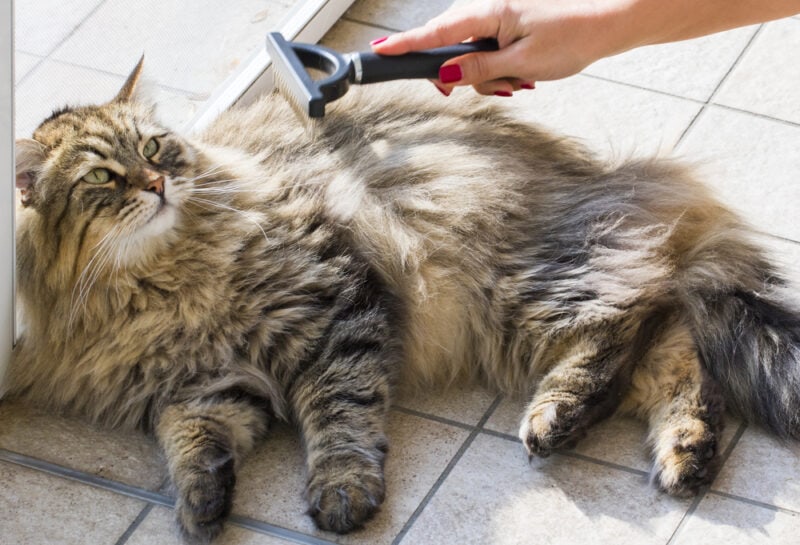
10. Offer a Reward
One of the best ways to get your cat to cooperate is to offer them a reward. This could be their favorite treat, a little bit of wet food, or even just some extra attention. If they know they’ll get something good out of it, they’ll be more likely to cooperate.
Cat Brushing FAQs
How often should I brush my cat?
Try to brush at least once a week, but daily brushing is ideal. If you can establish a regular brushing schedule, your cat will be more likely to cooperate.
How do I know if I’m brushing my cat too hard?
If you’re using the right brush for your cat’s fur type and you’re being gentle, you shouldn’t have to worry about brushing too hard. If they start to get agitated, take a break and try again later.
My cat is shedding a lot. Should I be worried?
Shedding is normal for cats and usually nothing to worry about. However, if your cat is shedding excessively or has bald spots, it could be a sign of a health problem. Contact your veterinarian for more information.
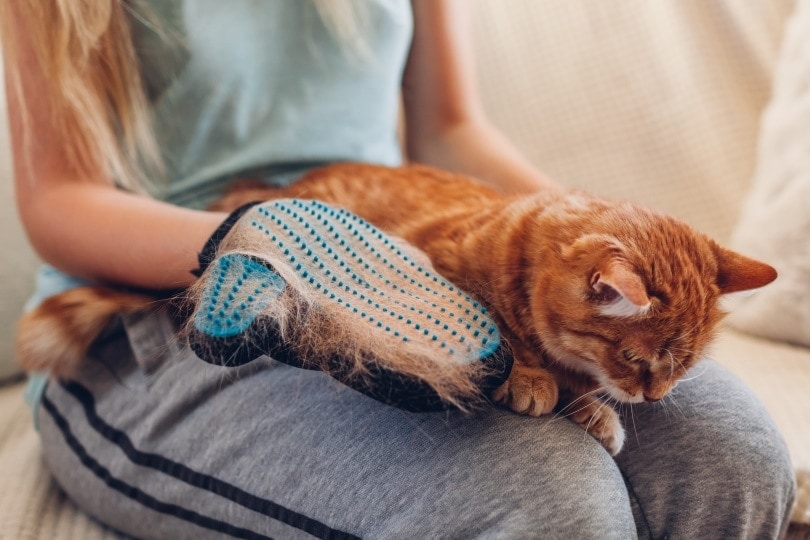
Are there any other benefits to brushing my cat?
Brushing not only helps keep your cat’s fur clean and healthy, but it also provides them with much-needed attention and affection. It’s a great way to bond with your cat and make them feel loved. Plus, it can help reduce stress and anxiety.
What happens if I don’t brush my cat?
If you don’t brush your cat, their fur can become matted and tangled. This can be painful for them and may even lead to skin problems. In extreme cases, it can restrict their movement and make it difficult for them to use the litter box or eat. Regular brushing will help keep your cat’s fur healthy and prevent these problems from occurring.
Should I shave my cat instead?
Shaving your cat is generally not recommended, as it can damage their fur and skin. If you’re struggling to brush your cat’s fur, talk to your veterinarian about other options. They may be able to recommend a different type of brush or grooming product that will make the process easier.
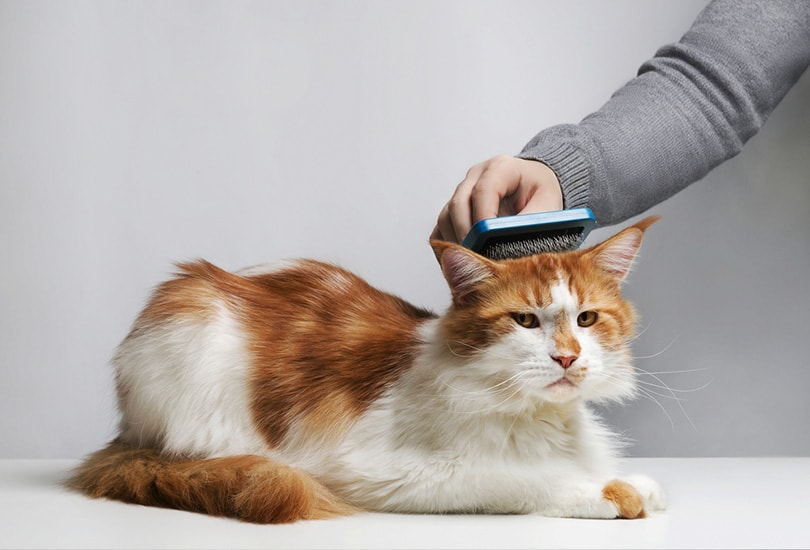
Can I take my cat to a groomer?
Yes, you can take your cat to a groomer. However, it’s important to find a reputable groomer who has experience with cats. Make sure to do your research and ask for recommendations before making a decision.
Should you bathe a cat before you brush them?
No, you don’t need to bathe your cat before you brush them. In fact, it’s usually best to avoid bathing them too often, as it can dry out their skin. If you do need to give them a bath, make sure to use a mild shampoo designed for cats and be very careful not to get any water in their ears or eyes.
Do all cats need to be brushed?
No, all cats don’t need to be brushed. Some cats are able to groom themselves just fine and don’t require any assistance. However, if your cat is shedding excessively or has long fur, they may benefit from regular brushing.
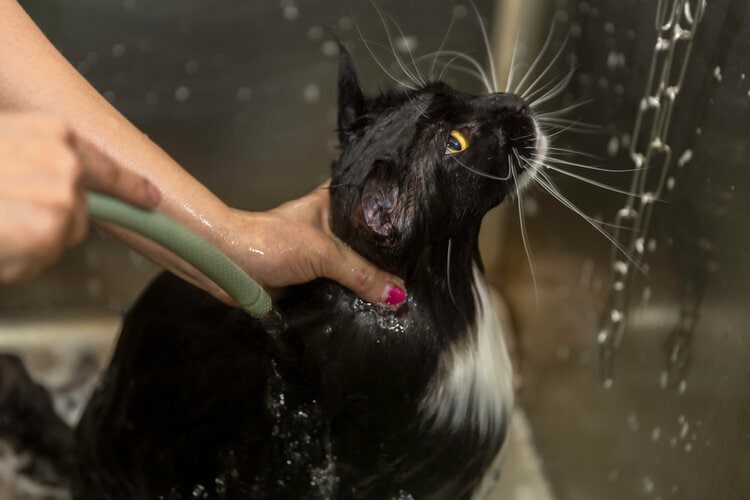
Are there any risks associated with brushing my cat?
If you use the wrong brush or brush too hard, you could damage your cat’s fur or skin. Always be gentle and use a brush that’s designed for their fur type to avoid any problems.
Bottom Line
Brushing your cat is a great way to keep their fur clean and healthy. It also provides them with much-needed attention and affection. If you can establish a regular brushing schedule, your cat will be more likely to cooperate. Use a detangling spray or conditioner to make the process easier and offer a reward, like their favorite treat, wet food, or extra attention. If you’re struggling to brush your cat’s fur, talk to your veterinarian about other options. They may be able to recommend a different type of brush or grooming product that will make brushing your cat easier.
Featured Image Credit: Impact Photography, Shutterstock







